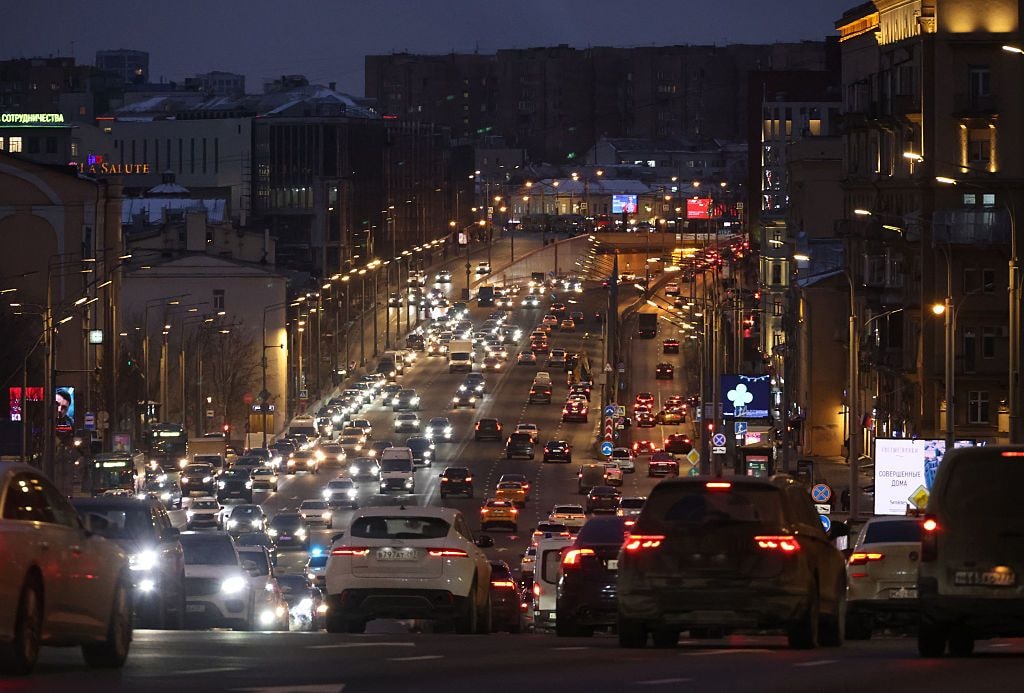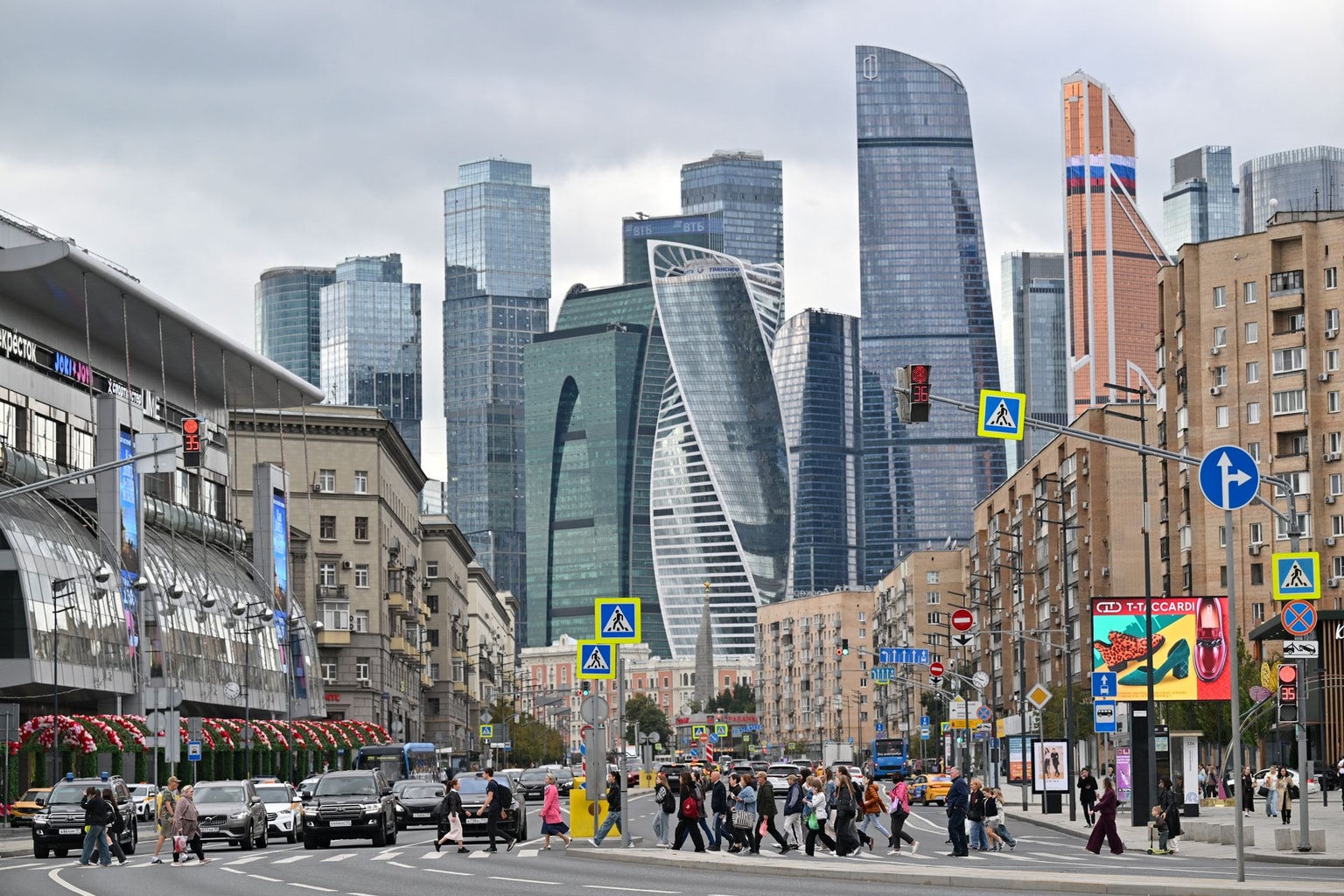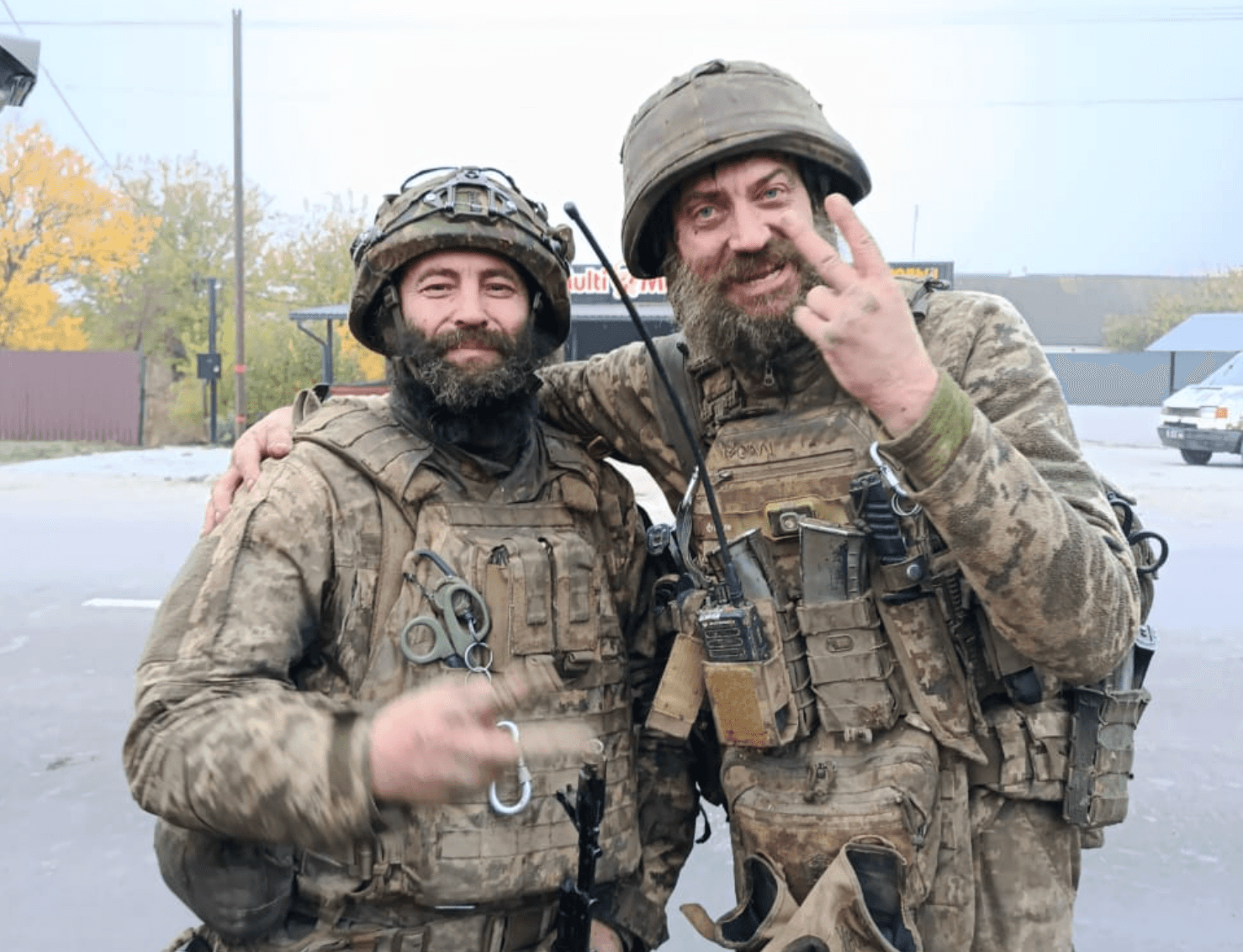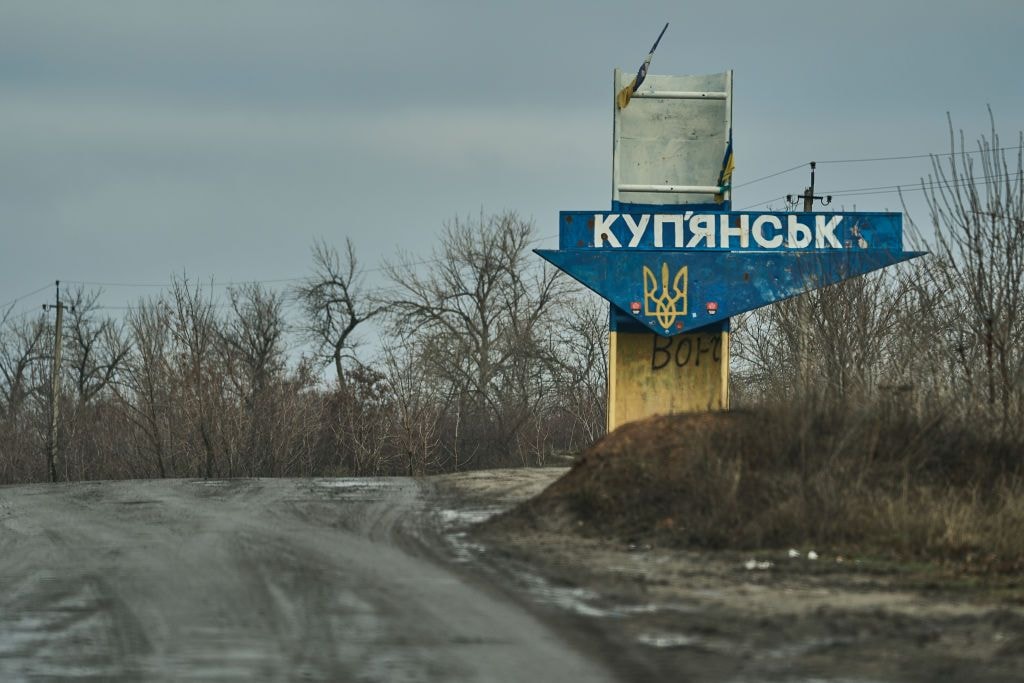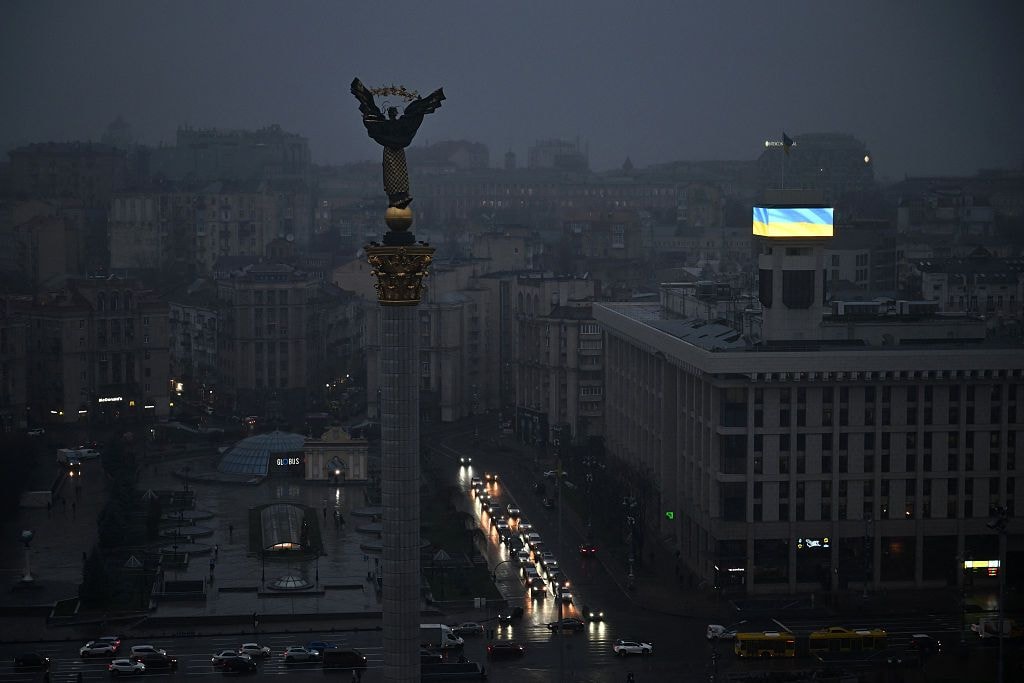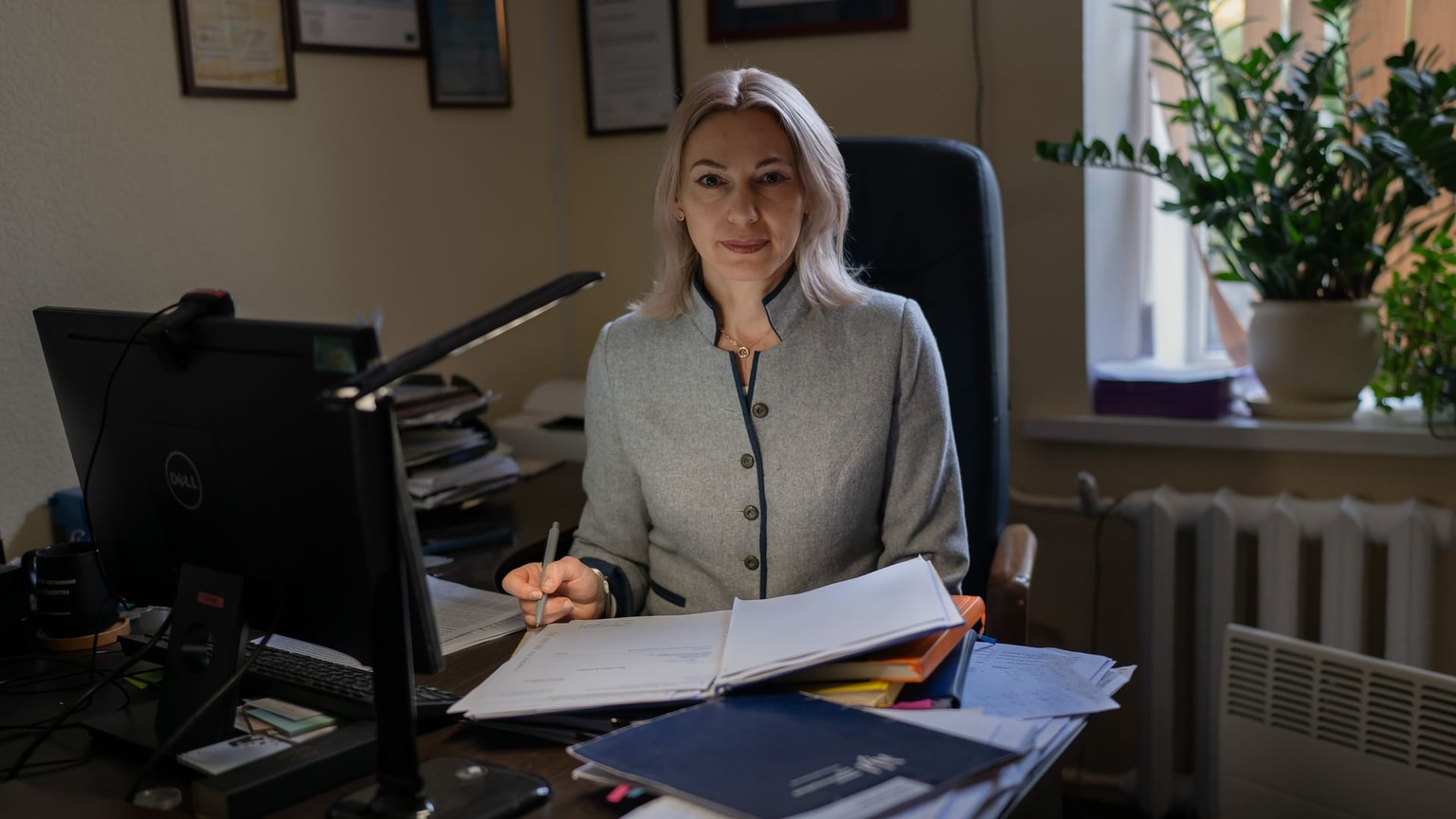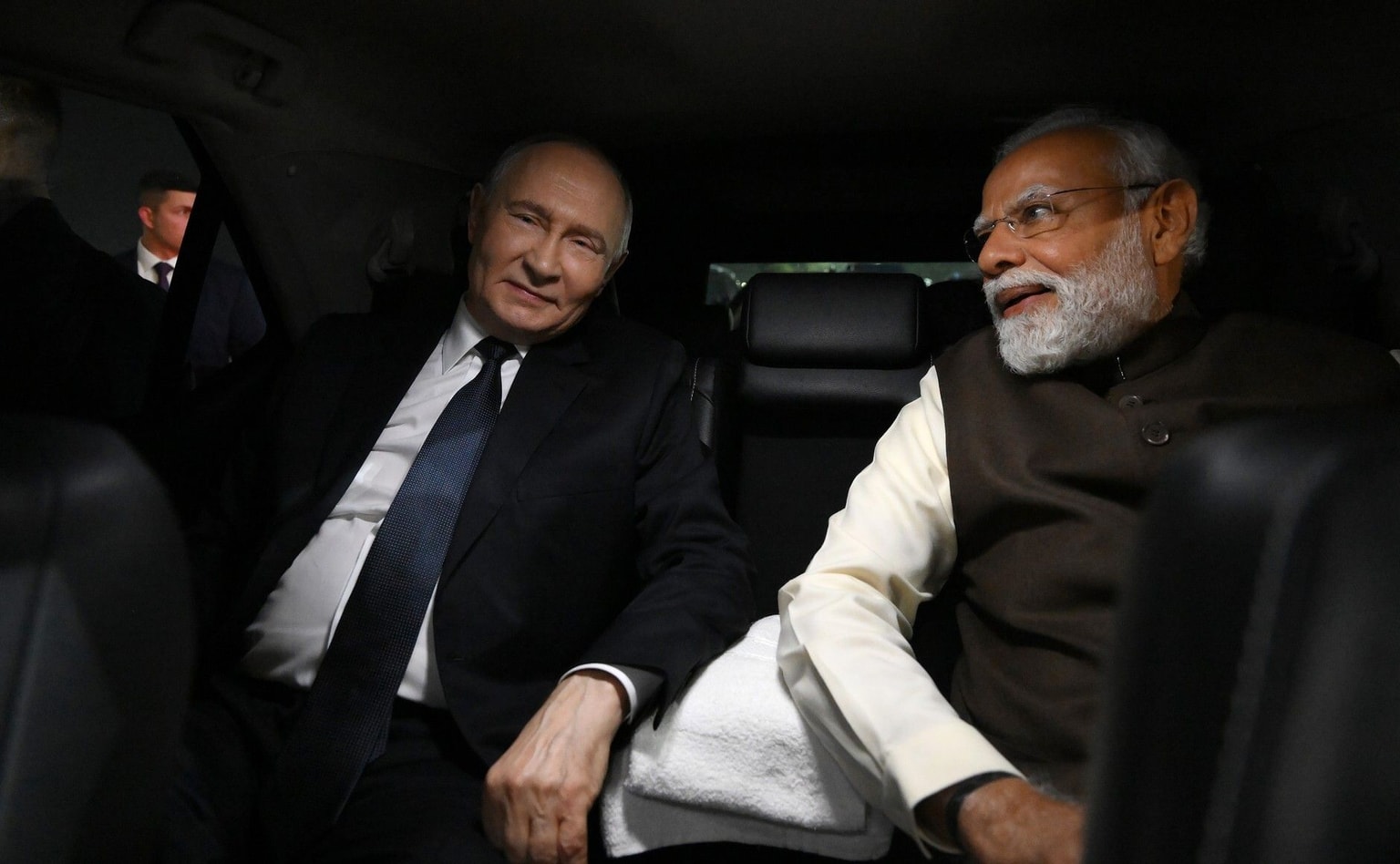Ukrainian civilians fearlessly prepare for Russia's offensive

One cold day in early February, Ukrainian Maria Giedroyc put her two sons to bed for a daytime nap, just like she usually does. She spent the next two hours packing backpacks for the entire family.
But they were not going on vacation.
Giedroyc packed those go-bags with essentials so that the family can leave their home in Kyiv as quickly as possible in case of a large-scale Russian offensive against Ukraine.
“We know what it’s like living next to Russia,” Giedroyc says. “So we have to be prepared for anything.”
The threat of a further Russian invasion has been hanging over the country for months now. It escalated on Feb. 22, when Russian President Vladimir Putin sent troops into the Kremlin-occupied territories of Donetsk and Luhansk oblasts in eastern Ukraine, after officially recognizing them as independent states.
Even before the recent developments, many Ukrainians have decided to prepare for Russia’s military offensive in advance.
Some of them have packed their most valuable belongings, documents, and emergency kits to quickly leave home towns. Others have been stocking up on petrol, studying the routes to relocate to western Ukraine, or even purchased guns to protect themselves and their families. Many looked for the nearest bomb shelters in case of shellings, yet still try to keep calm and make plans for the future.

Whole life in one backpack
Giedroyc says she wasn't panicking when the news about Russia massing thousands of fully-equipped troops near Ukraine broke in November.
She started to feel anxious only after reading messages in group chats for parents from the school and kindergarten where her children go.
“Parents kept sending messages asking the schools what they plan to do in case of shelling,” Giedroyc says. “That was quite disturbing.”
Giedroyc then decided that being prepared well would help her calm down. It wasn't the first time she was packing the go-bag though: Giedroyc had to pack one back in 2014, “just in case,” as she was worried about her husband who went for a business trip to Crimea just before Russia started occupying the Ukrainian peninsula.
This time, however, Giedroyc had to pack essentials not just for herself, but for her family and their beloved pet as well.
She started with essentials: Besides passports, she prepared a USB drive with other family documents, packed chargers and power banks, matches, flashlights, as well as some cash, water, and some non-perishable snacks.
Giedroyc equipped their go-bags with first aid kits where she put notes about the blood types and allergies of every family member. She also packed some clothes.
She then asked her kids to pack what they thought would be necessary for them: Giedroyc's younger three-year-old son took his favorite toy and a book along with a sanitizer and band-aids with dinosaurs printed on them. Her six-year-old son packed some toy cars, a book, his favorite snack, and a pair of his favorite socks.
“I allowed them to be creative so that it wasn't a traumatic experience for them,” Giedroyc says.
They didn't tell kids about the war or invasion, not to scare them too much, but explained that in case of emergency, they would need to listen carefully to their teachers and follow them to the nearest bomb shelters.
“If the child isn't prepared for this, he may be panicking or protesting to go,” Giedroyc says.
A chance Facebook post by Mykhailo Zhernakov, head of legal think tank Dejure, turned out to be extremely helpful for Giedroyc, as it reminded her to pack medicine for their dog's chronic disease.
Zhernakov himself had a go-bag fully packed days before he published that post in late January: He has everything needed to survive at least several days in the extreme conditions, even without the roof over his head. He says he also has "different plans for different developments."
“Being prepared for different scenarios calms down a great deal,” Zhernakov says.
If something starts happening in Kyiv, Giedroyc's family plans to relocate outside of the capital where their relatives live. If the situation gets worse, they will travel to their relatives in western Ukraine.
Giedroyc hopes that she would never need to use the go-bags she packed weeks ago. But “just in case,” she packed their family photo album to help her and the kids find comfort in the most turbulent hours.
“Whatever happens, it's always so comforting to look at photographs with familiar faces and familiar environments on them,” Giedroyc says.

Guns to protect loved ones
The threat of invasion doesn't intimidate another Kyiv resident Ruslan Rokhov. He knows how to protect his family and is determined to do so if Russia attacks further.
Rokhov, 35, bought some weapons for personal and home defense almost two years ago. In Ukraine, residents are allowed to own non-military weapons including hunting rifles and pneumatic guns if they take relevant courses, and pass medical and psychological examinations.
As soon as tensions have once again escalated near the Ukrainian border, he purchased plenty of bullets and other equipment for his carbine rifle, pump-action shotgun, and an air pistol.
Rokhov says he noticed queues in gun shops when buying bullets — something he hasn't witnessed earlier.
“This threat has become not just theoretical but quite real this year,” Rokhov says. “We have to be ready.”
Knowing that anything can happen during wartime, Rokhov prepared for possible emergencies and shortages. He also bought portable gasoline containers with non-spill spouts to help him fill his car even if gas stations run out of fuel, as well as two handheld transceivers if the cellular network is damaged. The walkie-talkies will help him communicate with his loved ones at a distance of almost 15 kilometers, he says.
“Mobility is highly important but it is also important to be in touch to coordinate actions,” Rokhov says.
Yet there is not a hint of panic in his family. A clear plan helps them to keep calm: If Kyiv is attacked, Rokhov will pick up his five and seven-year-old sons from school as fast as possible, grab some necessities from their apartment, and head west using smaller roads. He plans to relocate to Rivne Oblast, where his wife's parents live, to wait for de-escalation there.
“They have a cellar stocked with food, and the house is heated with a wood stove,” Rokhov says. “Everything is much more suitable (for surviving) and prepared there.”
If there is no shelling in Kyiv, Rokhov would return to the capital to protect his property from looters. He believes that with such a neighbor like Russia, every Ukrainian has to have a gun to protect themselves and the country.
“If every Ukrainian had a weapon, no Russian soldier would ever come here,” Rokhov says. “It just doesn't make sense to invade the territory where you can get shot at night from every window.”
Rokhov says that Ukrainians are not afraid of some “uncertain future,” as the war is not new to them. They are prepared for it this time.
“We have proved that if there is a threat, we unite to fight back,” he says.


